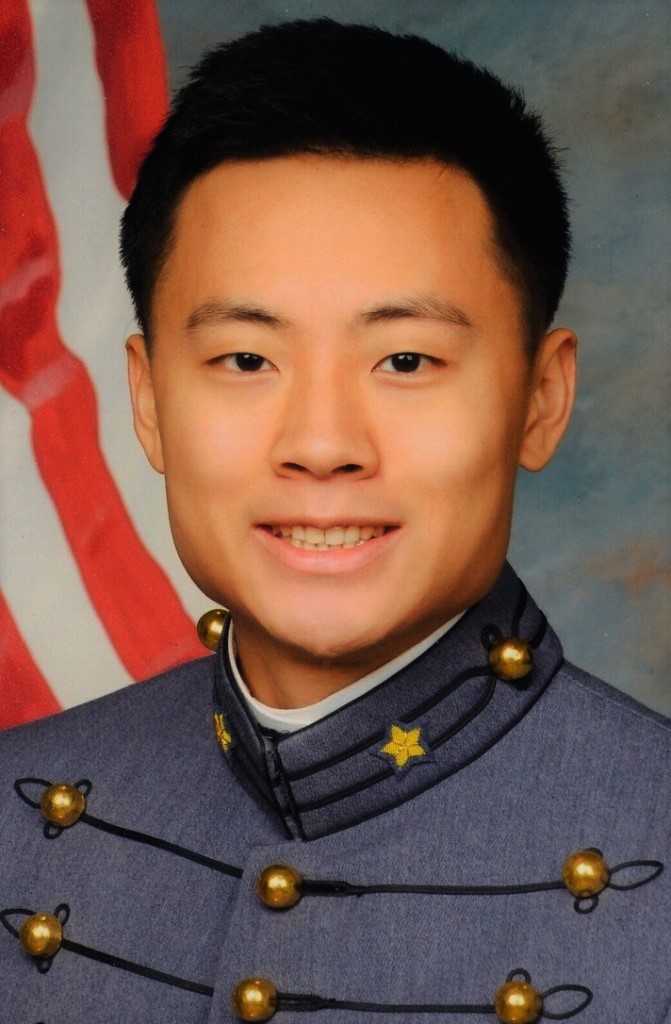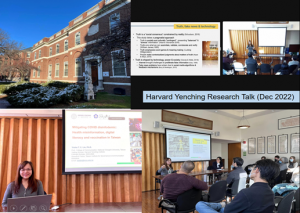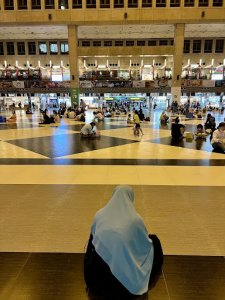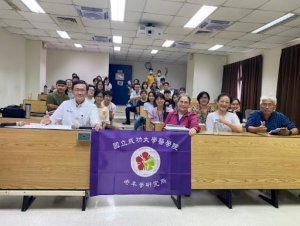Introduction
This paper will attempt to answer the following research question, “will China’s military modernization and professionalization change the institution of political commissars in the People’s Liberation Army?” The incoming development of technology, the revolution in military affairs, and the changing composition of PLA personnel will all contribute in accelerating the transition away from a symbiotic party-army relationship to increasing institutional autonomy. The concept of professionalization supports Huntington’s theory of civil-military theory of objective civilian control. Such support, in turn, has major consequences for the political commissar system. Second, the need for a non-commissioned officer (NCO) support system places political commissars in the prime position to begin shifting their roles and responsibilities away from ideological purposes.The goal is to utilize this research to better understand how China has changed their military organization and to conceive a more complete representation of China’s PLA.
What are Political Commissars?
Since the early 20th century, the PLA leadership structure has incorporated political officers at every level of their chain of command. Unlike the U.S. military which attempts to separate political actors from their tactical and military decisions (except at the highest level of leadership), the PLA is a Party-army: its strategies, regulations, and traditions are all affected by the reality that it is devoted to the Chinese Communist Party (CCP).[1] Consequently, PLA command officers share their leadership positions with political officers trained to carry out Party tasks[2]. The lack of a clear divide between political and military affairs requires careful analysis since China’s political party has direct oversight on the military culture of the PLA.
To the United States military, the idea of a political commissar is a completely novel and foreign concept. According to DOD directive 1344.10:
“A member of the Armed forces shall not: -4.1.2.12. Display a partisan political sign, poster, banner, or similar device visible to the public at one’s residence on a military installation, even if that residence is part of a privatized housing development.”[3]
On the other hand, such activities and display of partisanship in the PLA are widespread and even encouraged by the Party, the Chinese Army, and especially the political officers. While U.S. restrictions for service members are meant to develop a distinct separation between the military and political activities, China’s PLA seems to actively promote the closing of the military-political gap.
The institution of the political officer was originally planned to accomplish the following goal: “to disseminate the CCP’s perspective in the PLA and strive to maintain absolute control of the Party over the army”.[4] While the aforementioned mission statement is very clear-cut in what the CCP intended for political commissars, Chairman Mao had an expanded purpose for the department. The implied task for the political commissars was to help direct and guide the military through political traps. In this manner, the military could accomplish their mission more effectively without being hindered by inconsistencies between the military political divide. The functions of the political officer then, became to not only shape the ideological functions of the unit, but to also assess strategy and military campaigns. At the height of the political commissar era in 1969, PLA political officers were able to fully implement their authority at all command grades with an overwhelming amount of control.[5] These responsibilities have since increased with the expansion of the political department and various subsets associated underneath it. There exist 11 different second level departments that Western military analysts have discovered. The first is the general office which essentially runs the General Political Department (GPD) and manages the top political leadership. Other departments manage personnel files, party organization, propaganda distribution, public affairs, military crime/law enforcement, multiple military art organizations, and the military legal system.[6] Under these tasks, the political department has an enormous degree of influence on how the PLA is able to operate.
Brief History of Modernization
What then, is the relevance of political commissars in the modern-day PLA? The People’s Republic of China has implemented vast organizational reforms that aim to rearrange the entire military complex. The PLA is in the midst of an ambitious two-decade long modernization, the goal of which is to create a more “professional force” on the similar scale to Western superpowers, namely, the U.S Army. The professionalization of armed forces can be described as an attempt to recreate the organization structure of the military to create a less polarized and politicized establishment.[7] There has been a trend towards increasing professionalism and expert knowledge in the Chinese military. In consideration of political positions, U.S military officers are barred from engaging in government office and/or having strong political stances while in uniform or in public forum. To fully “professionalize” one’s military, it is commonly accepted that institutions such as the political commissar cannot coexist with a depoliticized military. China, however, maintains that professionalism can be achieved even with a political commissar system. In the next few sections, this paper will explore how professionalism can be achieved within the political commissar system.
Professionalization at Odds with Political Commissar System
As a basis of comparison, my study will define the standards of professionalization in accordance with the U.S military. The U.S military explicitly states that military officers need to be apolitical in order to maintain professional décor and complete their duties without political bias.[8] The major dilemma that this paper focuses on is that the political commissar system fundamentally opposes the effects of professionalization because the CCP lacks the technical knowledge or combat experience to direct the PLA. While the original purpose of uniformed commissars was to act as party representatives within the PLA, the modern “professional” concept of PLA political commissars needs to shift to become military officers that bear the responsibilities of political affair functions on behalf of the party. The key distinction here is the “military” term. A professional military cannot operate in a depoliticized fashion with political commissars that identify as political officers. Instead, political commissars need to be military officers first that have a secondary responsibility to political affairs.
In his theories on civil military relations, Huntington argues that the military professional will thrive under objective civilian control – where the military professional is far removed from politics. The political commissar system places the PLA under a form of subjective civilian control, where military professionalism is diminished because of the integration of the military with civilian politics. Objective control is meant to increase the professionalism and institutional independence of the military by barring inexperienced politicians from directly controlling military affairs. In support of the recent attempts at modernization and professionalization, findings show that the political commissar system has not been utilized for its original purposes. The PLA was created as a party army, and under the subjective civilian control theory, has a direct role in domestic factional politics. Under the political commissar system, the PLA would then be guided by the CCP to defend the party against any threats and potential opposition from the public or other political entities. Research shows that this system has not been exploited by any CCP leaders for the past two decades. [9]
At its base level, Scobell argues that the PLA is intimately tied together with Chinese society as the “People’s Liberation Army”.[10] It would then be inappropriate for a professional military soldier in the political commissar system to direct the PLA against the society in factional politics such as during the 1989 Tiananmen massacre. While the PLA followed CCP orders on Tiananmen, there was evidence of military reluctance to fire upon civilians. Similar events would decrease the CCP’s legitimacy to rule and could potentially cause conflicts between the military and CCP. [11]
These potential conflicts and following policy changes in China can be explained by the case study performed by LeoGrande on Cuba’s political commissar system. So far, this study has outlined the necessity of a shared purpose between the military and political system so that the armed forces can carry out their duties in an effective manner. Nonetheless, shared purposes do not rule out the potential for conflict as shown with the 1989 Tiananmen massacre. In 1963, the Cuban military exploded with conflict when political commissars attempted to exercise their “dual command authority” over their military commanders. The military commanders firmly opposed political commissars from taking command under the premise that they lacked the military knowledge to conduct operations and further interference would potentially affect the combat readiness of troops.[12] The Cuban government recognized the dangers of taking away military autonomy and quickly resolved the conflict in favor of the military commanders. Since then, the objective of political education and political commissars shifted from “raising the revolutionary consciousness of the troops” to “improving military discipline, combat morale, the military training of troops and combat preparation.” The Cuban case study is comparative to the current changes occurring in the political commissar system in China. The Chinese government has also recognized the dangers that come with party control of military operations and has begun to shift the roles of the political commissars.
The increasing emphasis on professionalism has forced the CCP to reign in the political commissar system which in turn is slowly altering the institution. Under the objective civilian control theory, civilians would continue to direct military strategy and security policy – but allow the military commanders to make the actual decision on what operations are necessary to achieve the set policy objectives.[13] At the 14th CCP National Congress of 1992, Jiang Zemin took the initiative to change the 1989 policy of strict military control and ideological education with a new strategic objective to sustain economic growth and development.[14] Jiang’s policies and other military policy reforms later directed by Hu Jintao and Xi Jinping have supported Huntington’s theory of objective control and professionalism. While there is no denying the existence of subjective control of the PLA due to CCP power transitions and the nature of the political commissar system, the CCP has been forced to sacrifice “absolute control” over the PLA to maintain their legitimacy and civil military cohesion.
Changing Roles of the Political Commissar System and the NCO Backbone
A political officer’s sphere of influence makes their position a very sensitive and therefore carefully recruited position. Oftentimes, these political officers are selected from the ranks of cadets with previous and proven CCP affiliation that affirms their loyalty to the party. Generally speaking, it is very difficult to move from one officer track to another.[15] The exception to the previously mentioned standard is with political officers. Due to the low numbers of directly commissioned political officers, these positions are often filled by officers and soldiers from logistical, technical, armament, and command tracks.[15] PLA political officers would hypothetically be more attuned to the ideological and personal needs of their unit if given the opportunity to serve within the operational force first. At the same time, this type of system creates a chain of command that places political officers in a subordinate position to the military commander. In a crisis situation, the CCP could hypothetically pressure political commissars to shape military decisions in accordance with ideology. At the same time, political commissars that have held previously positions in other military branches will expose political commissars to their own personal lack of military knowledge and therefore defer judgement to the military commander. A preeminent scholar in the field, You Ji, has suggested that the political commissar is likely to place their loyalty to the armed forces before the party. [16]
Similar to the relationship between a company commander and first sergeant, political officers in the operational force are often paired with a military commander of the same grade. Fundamentally, the two roles within the team are split by the following objective: while military commanders are tasked to further the CCP political objectives in terms of strategy and the general mission, their political officer counterparts are tasked to further CCP political objectives within the PLA.[17] This means that the military commanders are focused on the overall mission and externally on the larger goals for their unit while political officers are more focused internally within their unit to make sure the goals are supported by their subordinate soldiers. Aside from their various departments, political officers are now responsible for five major tasks, only two of which deal with political ideology. Previously mentioned tasks encompass overseeing the military unit to ensure loyalty to the CCP’s objectives, engaging with civilians through public affairs and education systems, and a personnel responsibility system to report on or conduct cadre meetings and investigations.[18] The last two tasks are to improve troop morale and enhance the political consciousness of the unit. These two tasks further expand the multipurpose functions of the political officers. Some PLA officers note that a political officer has a very similar role to the modern-day non-commissioned officer (NCO). In the U.S military, NCOs act in positions such as the platoon sergeant and first sergeant. In these positions, NCOs are considered to be the right-hand man of the commanding officer and fill the gap between enlisted and officer ranks. For PLA political officers, military-political work is defined as a lifeline between the two entities and a bridge between the lower enlisted and their superior commanding officers.[19] In many ways, these PLA officers act as the unit counselor and psychologist. Since personnel affairs often come through their way, political officers become individuals that are intimately involved with the day-to-day taskings within the unit. One of the major objectives of the PLA has been to create a professional NCO corps which is often described as the backbone to western militaries due to their supporting roles to military commanders. Political commissars are primed to become the modern-day NCOs of the PLA which would in turn develop the professionalism of the Chinese military.
Conclusion and Future Thoughts
This paper concludes that the political commissar system is slowly becoming subordinate to the military commander hierarchy, despite their defined equality. There has been a shift from “absolute control” and comprehensive organization penetration to a softer form of political influence and guidance. In China’s version of professionalization, the political commissar system will always play a role in the subjective control of the PLA. As the PLA continues to move towards objective control under current modernization trends, the political commissar system will experience changing roles and a decreased emphasis on raising ideological consciousness. Instead the political commissar system has the potential to become the leader of the NCO backbone that the PLA needs.
Managing Editor: Tiffany Hwang
References
[1]Mingda Qiu, “China’s Science of Military Strategy: Cross-Domain Concepts in the 2013 Edition,” Deterring Complex Threats, (September 2015), accessed April 20, 2016, http://deterrence.ucsd.edu.
[2]Kenneth Allen and Brian Chao, “China’s Military Political Commissar System in Comparative Perspective,” China Brief 13, no. 5, (March 4, 2013), accessed January 7, 2017, http://www.jamestown.org/programs/chinabrief/single/?tx_ttnews[tt_news]=40545&cHash=f395b90a6b7821a89bfcd2d928153492#.VyvgouROL5H.
[3]“Election Season Calls For Caution, Professionalism Among Military,” DoDLive, July 24, 2012, accessed December 30, 2016, http://www.dodlive.mil/index.php/2012/07/election-season-calls-for-caution-professionalism-among-military/.
[4]John Bryan Starr, Understanding China: A Guide to China’s Economy, History, and Political Culture (2001: Macmillan), 68.
[5]Laurie Burkett, The Lessons of History: The Chinese People’s Liberation Army at 75. Carlisle, PA: Diane Publishing Co., 2003, 343.
[6]Mark Stokes and Russell Hsiao, “The People’s Liberation Army General Political Department,” Project 2049, October 14, 2013, , accessed December 19, 2016, https://www.project2049.net/ documents/PLA_General_Political_Department_Liaison_Stokes_Hsiao.pdf., 18.
[7]“Military Measures,” Toolbox, accessed January 2, 2017, https://extranet.creative worldwide.com/CAIIStaff/Dashboard_GIROAdminCAIIStaff/Dashboard_CAIIAdminDatabase/resources/ghai/toolbox6.htm.
[8]Mackubin Thomas Owens, “Military Officers, Political without Partisanship,” Strategic Studies Quarterly, Fall 2015, accessed January 3, 2017, http://www.au.af.mil/au/ssq/digital/pdf/Fall_15/Owens. pdf., 1.
[9]Nan Li, “Chinese Civil-Military Relations in the Post-Deng Era, Implications for Crisis Management and Naval Modernization,” China Maritime Studies 4 (January 2010): , accessed December 28, 2016, https://www.usnwc.edu/Research—Gaming/China-Maritime-Studies-Institute/Publications/documents/China-Maritime-Study-No-4-January-2010.aspx., 1.
[10]Andrew Scobell, “China’s Evolving Civil-Military Relations: Creeping Guojiahua,” Armed Forces and Society 31, no. 2 (Winter 2005): , accessed December 28, 2016, http://journals.sagepub.com/doi/pdf/10.1177/0095327X0503100204., 231.
[11]Nan Li, “Chinese Civil-Military Relations in the Post-Deng Era, Implications for Crisis Management and Naval Modernization,” China Maritime Studies 4 (January 2010): , accessed December 28, 2016, https://www.usnwc.edu/Research—Gaming/China-Maritime-Studies-Institute/Publications/documents/China-Maritime-Study-No-4-January-2010.aspx., 18.
[12]William M. LeoGrande, “A Bureaucratic Approach to Civil-Military Relations in Communist Political Systems: The Case of Cuba,” in Civil Military Relations in Communist Systems, ed. Dale R. Herspring and Ivan Volgyes (Boulder, CO: Westview Press)., 206.
[13]James Burk, “Theories of Democratic Civil-Military Relations,” Armed Forces and Society 29, no. 1 (Fall 2002): , accessed December 15, 2016, http://journals.sagepub.com/doi/pdf/10.1177/0095327X0202900102., 4.
[14]Nan Li, “Chinese Civil-Military Relations in the Post-Deng Era, Implications for Crisis Management and Naval Modernization,” China Maritime Studies 4 (January 2010): , accessed December 28, 2016, https://www.usnwc.edu/Research—Gaming/China-Maritime-Studies-Institute/Publications/documents/China-Maritime-Study-No-4-January-2010.aspx., 12.
[15]Alison A. Kaufman and Peter W. Mackenzie, “Field Guide: The Culture of the Chinese People’s Liberation Army,” Center of Naval Analyses, 2009, Marine Corps Intelligence Agency., 36.
[16]David M. Finkelstein and Kristen Gunness, Civil-military relations in today’s China: Swimming in a new sea (Armonk, NY: CNA Corporation, 2007)., 154.
[17]Srikanth Kondapalli, “China’s Political Commissars and Commanders: Trends and Dynamics,” Institute of Defence and Strategic Studies 88 (October 2005): , accessed December 3 , 2016, http://www.rsis.edu.sg/wp-content/uploads/rsis-pubs/WP88.pdf., 1.
[18]Liu Mingzhi, ‘The Political Work System in the CCP Army’ Trend (Hong Kong) January 1997 pp. 26-29 as excerpted in Inside China Mainland (Taipei) April 1997 pp. 35-38.
[19]Srikanth Kondapalli, “China’s Political Commissars and Commanders: Trends and Dynamics,” Institute of Defence and Strategic Studies 88 (October 2005): , accessed December 3 , 2016, http://www.rsis.edu.sg/wp-content/uploads/rsis-pubs/WP88.pdf., 18.







